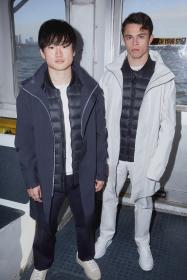NCTO: State of the U.S. Textile Industry Address
National Council of Textile Organizations (NCTO) Chairman Norman Chapman delivered the trade association’s State of the U.S. Textile Industry overview at NCTO’s 20th Annual Meeting on April 11.
Mr. Chapman’s speech highlighted the severe economic challenges confronting the U.S. textile industry that have been exacerbated by predatory trade behavior and customs fraud that is harming this vital and strategic domestic supply chain. He also highlighted NCTO’s effective advocacy efforts that resulted in a long list of accomplishments to counter some of the damaging illegal trade practices and bolster the industry.
“While the domestic textile industry is a key contributor to the U.S. economy and a critical part of the military and public health industrial base, our sector is facing a crisis of historic proportions as the result of rapidly deteriorating market conditions coupled with unchecked foreign predatory trade practices and diminished customs enforcement activities, Chapman stated in the speech. “At the end of the day, some key fundamentals for the U.S. textile industry remained sound, while others weakened. While we expect to see ongoing challenges this year, which will test our resolve, we know collectively as an industry this will not weaken our resilience or our innovative spirit.”
National Council of Textile Organizations






















